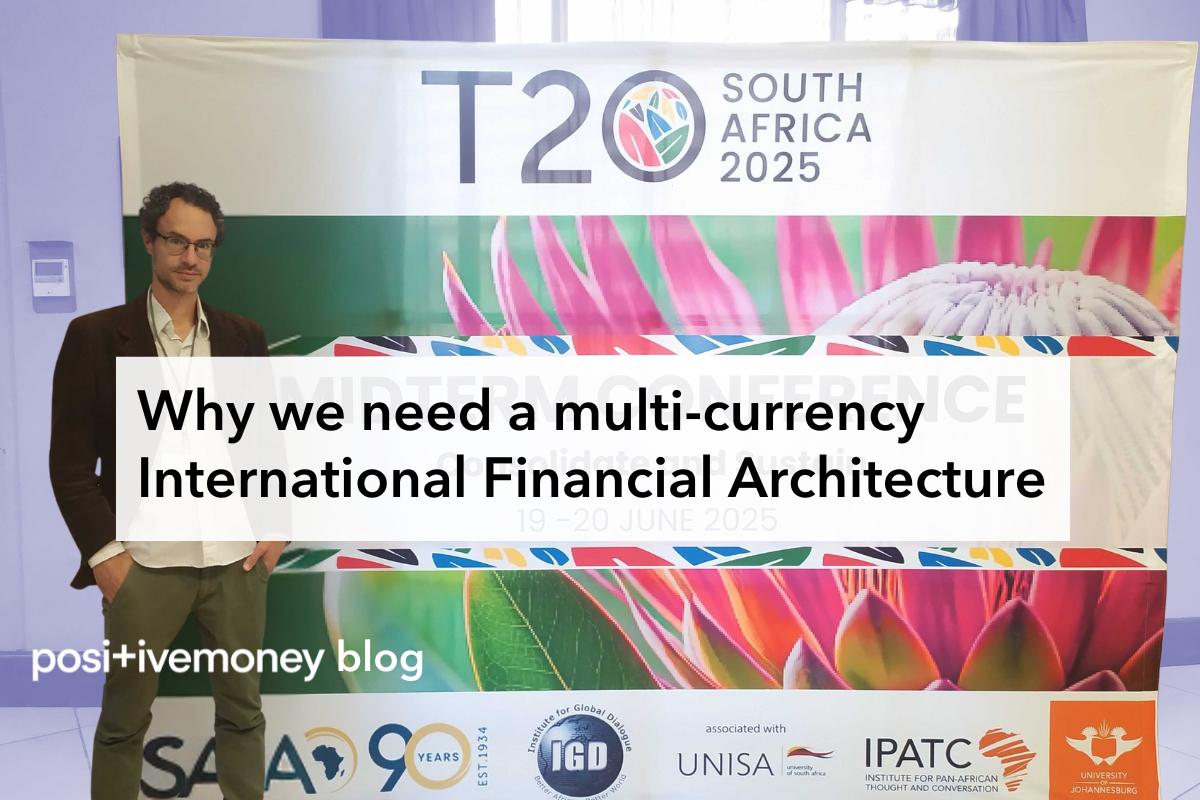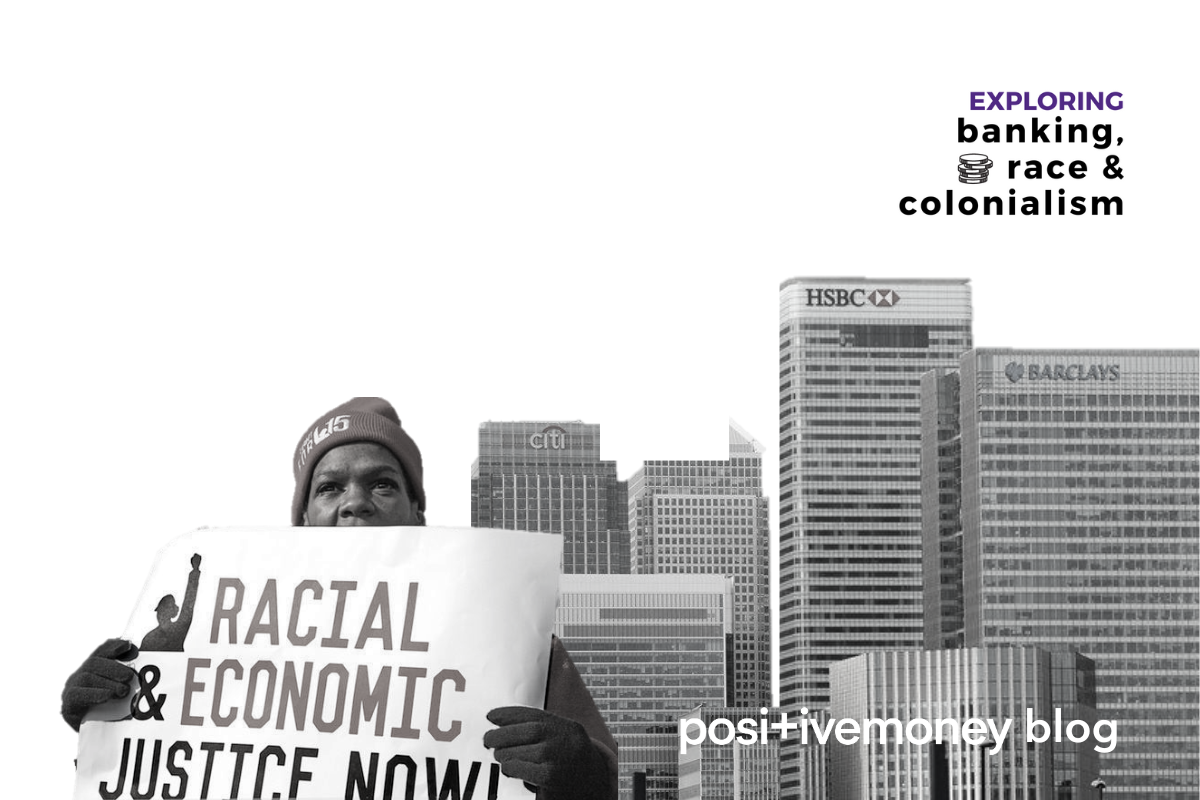
EUUK
3 July 2025
The idea of financial inclusion has gained traction in recent years, but the approach fails to account for how ethnic minorities face greater risk of financial exclusion in the UK. Public and private financial institutions must put racial economic justice at the center of their efforts to integrate underbanked and excluded communities.
In the UK financial system, the poorer you are, the more you pay to use your money. Access to a bank account and credit are vital parts of modern life, yet these basic financial services are far from universal. The concept of financial inclusion adopted by the government in 2017, states “individuals, regardless of their background or income, should have access to basic financial products and services”. This includes bank accounts, savings, credit, insurance, and money advice.
But over 1 million people live without a basic bank account and face a severe additional poverty premium of up to £500 a year, as a range of providers; including utility, broadband, and mobile phones companies, offer savings to customers who pay by direct debit and exclude those who can’t. While significantly more people – even with bank accounts – are unable to access affordable credit. While banks and large corporations get endless support from the Bank of England, the 20% of adults with less than £100 in the bank, are frequently left with high-cost short-term loans as the only option.
Those financially excluded are not a random selection of citizens, but are disproportionately Black, Asian and Minority Ethnic (BAME) communities and migrants. One study found BAME households have less access to consumer credit compared to white households – even after controlling for income levels and other demographics. But among the multitude of organisations working on financial inclusion, only a few, such as the Runnymede Trust, make explicit links to the goal of racial economic justice. Financial inclusion initiatives frequently focus on the rural poor or aging populations but fail to account for the racial wealth gap. While other racial disparities across education, health, employment, poverty or housing feed a vicious cycle where structural disparities manifest in further financial exclusion, which in turn, entrenches existing inequalities. As Runnymede’s The Colour of Money report highlights, stark ethnic disparities in financial outcomes emerge from historical racial inequalities and our shared colonial history, with Black African and Bangladeshi households holding 10 times less wealth than white people.
Affordable credit is an important piece of the puzzle towards more meaningful financial inclusion. Currently, people’s ability to borrow is based on standardised credit scoring which assesses the risk attached to a borrower, meaning banks offer those with poor credit ratings less favorable terms due to the higher perceived risk of default. This results in greater penalties for the racialised poor who can only access high interest credit. For banks, giving loans to wealthy clients will always be less risky and more profitable. As BAME communities also tend to be concentrated in poorer regions of the UK, they are further subjected to discrimination due to the unregulated practice of postcode risk scoring. To stop this unfair and unequal practice, the government should have access to the scoring criteria data used by commercial lenders, to prevent such profiling and financial exclusion.
In addition to postcode risk scoring, Black-owned businesses are four times less likely to be approved for loans and Black victims of fraud are twice as likely to be denied a refund than white victims. It therefore comes as no surprise that BAME communities have less trust in mainstream financial institutions and turn towards alternatives like credit unions (CUs), for example Pardner in the African Caribbean community and Ayuto in the Somali community, for their financial needs.
In an industry with a reputation for greed and profit, CUs are community-oriented havens that put people ahead of profit. Rooted broadly in mid 19th-century Rochdale co-operative principles of anti-discrimination and democratic member control, CUs present an image of what small-scale economic democracy should look like. In a CU, members pool their savings and lend to one another, and members have a say in how profits are shared. First established in the UK in 1964 by Jamaican immigrants, the desire to avoid racial discrimination from larger banks as well as predatory loan sharks, were key motivators in starting the Hornsey Co-operative Credit Union. Today the UK today boasts hundreds of CUs, providing as much as 40% (skip to 30:00) of the affordable credit loaned in this country.
However, the power of CUs are limited by the relatively small amount of money that can be pooled by people in these already under-invested communities. As Fair4all Finance’s Sacha Romanovitch explains, even before the current crisis, individual CUs were looking to merge for greater long-term sustainability. While small size community ownership fosters a greater sense of power and trust, bigger and more centralised pools of capital offer stability. Currently, CUs play a vital role but alone cannot ever hope to bridge the racial wealth gap.
Government initiatives for financial inclusion must also commit to eradicating racial financial exclusion, by turning to Fair4All Finance’s Research Roundup and research centres such as CHASM. While our work pushing for a publicly owned digital payments system sheds light on other ways the government and the Bank of England could support financially excluded BAME communities. Policies as simple as more free ATMs would go some way in tackling the racial poverty premium. As Mehrsa Baradaran argues: we need a central bank for the poor.
While more research must be done to uncover the intersection of race and financial exclusion, the government and the Bank of England must first start by acknowledging the disproportionate impact of financial exclusion on BAME communities. Only then can they implement targeted interventions that explicitly address race, in close collaboration with the BAME-led organisations who have long demonstrated the need to put racial economic justice at the centre of tackling financial exclusion.
This post is the second in our Exploring Banking, Race and Colonialism blog series. Click here to read other posts in the series.
